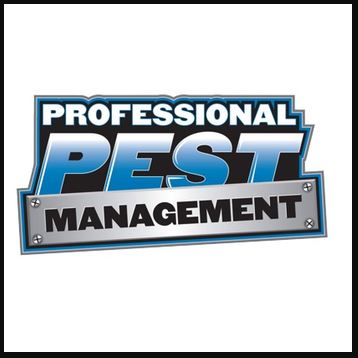Commercial properties are bustling hubs of activity, housing a diverse array of businesses. However, the very features that make these spaces vibrant—large spaces, consistent foot traffic, and varied tenant needs—also make them highly susceptible to pest infestations.
From rodents and cockroaches to termites and bedbugs, pests can cause extensive damage, health hazards, and reputation issues if not managed effectively. This is where a Professional Pest Manager plays a crucial role.
In this post, we’ll explore the significance of professional pest management in commercial property maintenance and detail how these experts safeguard property value, health, and operational efficiency.
Why Pest Management Is Essential in Commercial Properties
Pests are more than a nuisance; they seriously threaten commercial operations. Their presence can lead to:
- Health Risks: Pests like rodents, cockroaches, and flies carry diseases that can contaminate food, surfaces, and air quality. This is particularly problematic in restaurants, healthcare facilities, and offices.
- Structural Damage: Termites and other wood-boring insects can weaken buildings’ structural integrity. Rodents are notorious for chewing through wires, potentially causing electrical fires.
- Reputation Damage: A single sighting of pests can lead to negative reviews, customer loss, and reduced tenant satisfaction. In competitive markets, a poor reputation can be costly.
- Regulatory Compliance: Many industries, such as food services, healthcare, and hospitality, have strict pest control regulations. Failing to meet these standards can result in hefty fines or closures.
The Role of a Professional Pest Manager
Professional pest managers specialize in comprehensive pest prevention and control strategies tailored to commercial properties. Their expertise goes beyond simple extermination, encompassing proactive measures to ensure a pest-free environment.
Inspection and Risk Assessment
A professional pest manager begins with thoroughly inspecting the property to identify existing pest issues and potential risks. This includes:
- Identifying signs of infestations (droppings, damage, nests).
- Pinpointing entry points such as cracks, vents, and poorly sealed doors.
- Assessing factors that attract pests, like food storage, waste management, and moisture levels.
This step is crucial for creating a customized pest management plan.
Development of a Tailored Pest Management Plan
Every commercial property is unique, and a one-size-fits-all approach doesn’t work. Pest managers develop a plan that includes:
- Preventive Measures: Sealing entry points, installing screens, and improving sanitation practices.
- Targeted Treatments: Using eco-friendly and industry-approved products to eliminate specific pests.
- Scheduled Maintenance: Regular inspections and treatments to prevent future infestations.
Use of Advanced Tools and Techniques
Modern pest management leverages advanced tools and techniques to deliver effective solutions:
- Integrated Pest Management (IPM): A sustainable approach combining biological, mechanical, and chemical methods.
- Non-toxic Treatments: Especially important in spaces with high human traffic, such as offices and schools.
- Remote Monitoring: Sensors and cameras to monitor pest activity in real-time.
Compliance and Reporting
Professional pest managers ensure compliance with local regulations and industry standards. They provide detailed reports documenting:
- Inspections conducted.
- Treatments applied.
- Recommendations for ongoing pest prevention.
These reports are valuable for audits and tenant communication.
Key Benefits of Hiring a Professional Pest Manager
Prevention Over Cure
Professional pest managers focus on prevention, reducing the likelihood of infestations before they occur. This approach saves money and minimizes disruptions.
Expertise and Experience
Due to their size and diverse uses, commercial properties often face complex pest challenges. Professional pest managers have the expertise to address these challenges effectively.
Time and Cost Efficiency
DIY pest control can be time-consuming and ineffective in the long term. Professional services are more efficient, reducing downtime and ensuring lasting results.
Tenant Satisfaction
A pest-free property enhances tenant satisfaction and retention. This is particularly important for landlords and property managers aiming to maintain high occupancy rates.
Long-Term Property Value
Regular pest management protects the structural integrity and aesthetic appeal of a property, safeguarding its value.
Industries That Benefit Most from Professional Pest Management
While every commercial property can benefit from pest management, certain industries are particularly reliant on these services:
- Hospitality: Hotels, restaurants, and cafes require rigorous pest control to meet health standards and maintain customer trust.
- Healthcare: Hospitals and clinics need sterile environments, making pest control critical.
- Retail: Malls and stores must ensure a clean shopping experience to attract customers.
- Warehousing and Logistics: Protecting inventory from pests like rodents is crucial.
- Offices: A pest-free environment promotes employee productivity and well-being.
A Proactive Approach to Pest Control
Pests can jeopardize the safety, reputation, and functionality of commercial properties. Hiring a professional pest manager is a proactive step toward maintaining a clean, safe, and compliant environment. These experts eliminate existing infestations and provide long-term solutions that protect your investment.
For commercial property owners and managers, partnering with a professional pest management service is not an expense—it’s an investment in peace of mind, tenant satisfaction, and operational excellence. If you haven’t already, consider scheduling a consultation with a trusted pest management provider to secure the future of your property.




